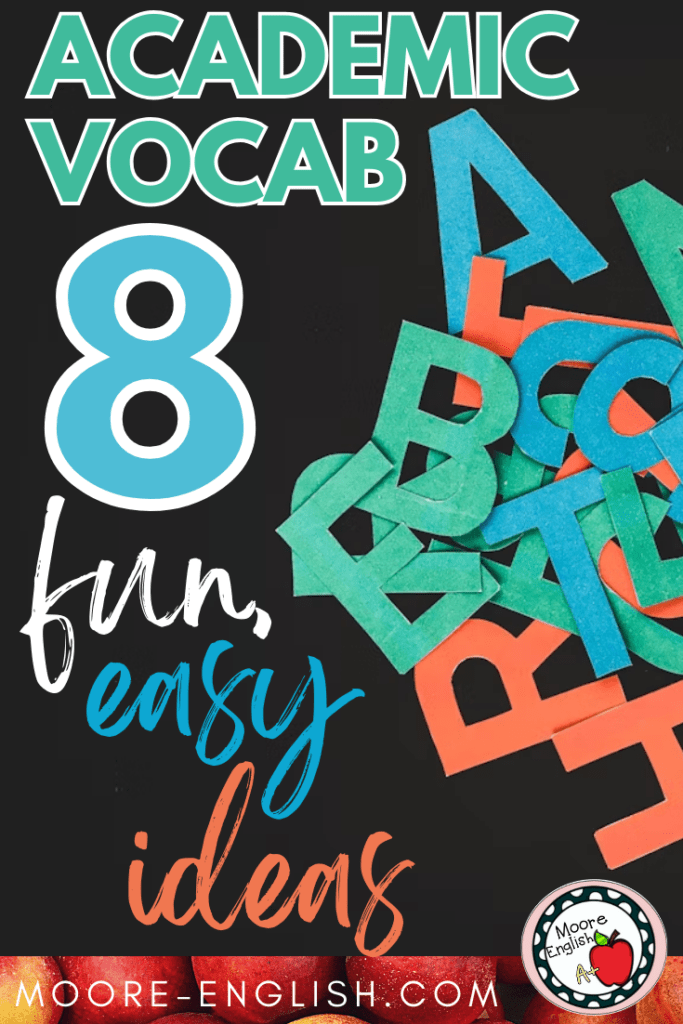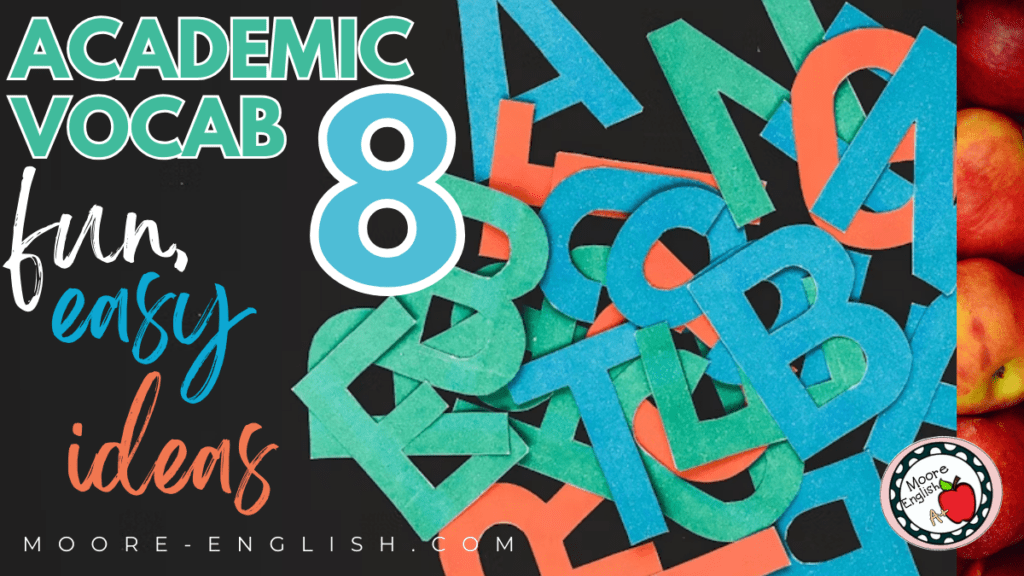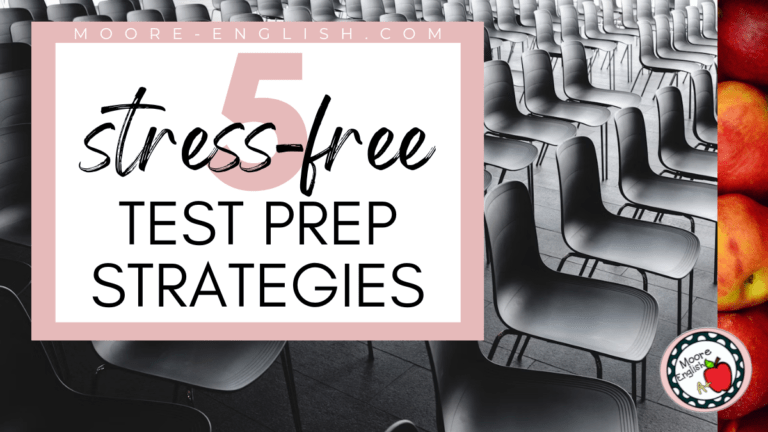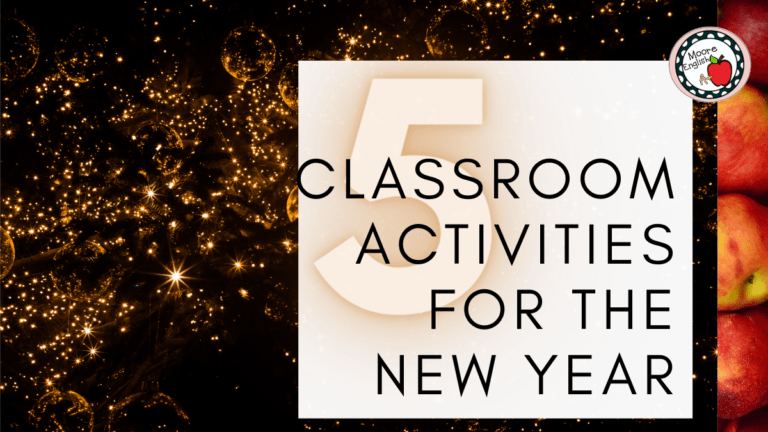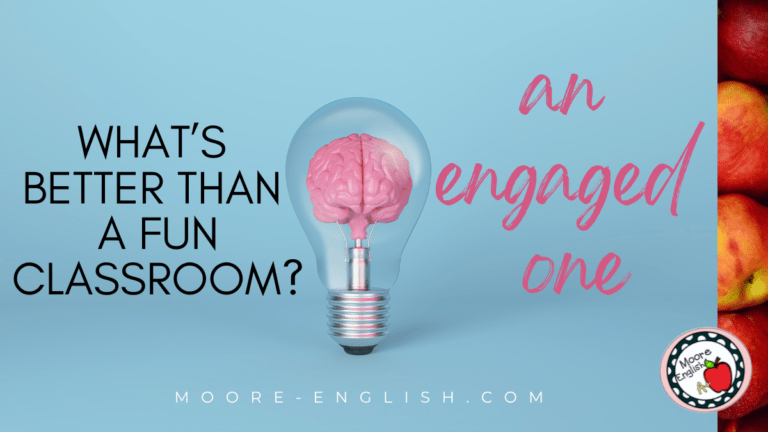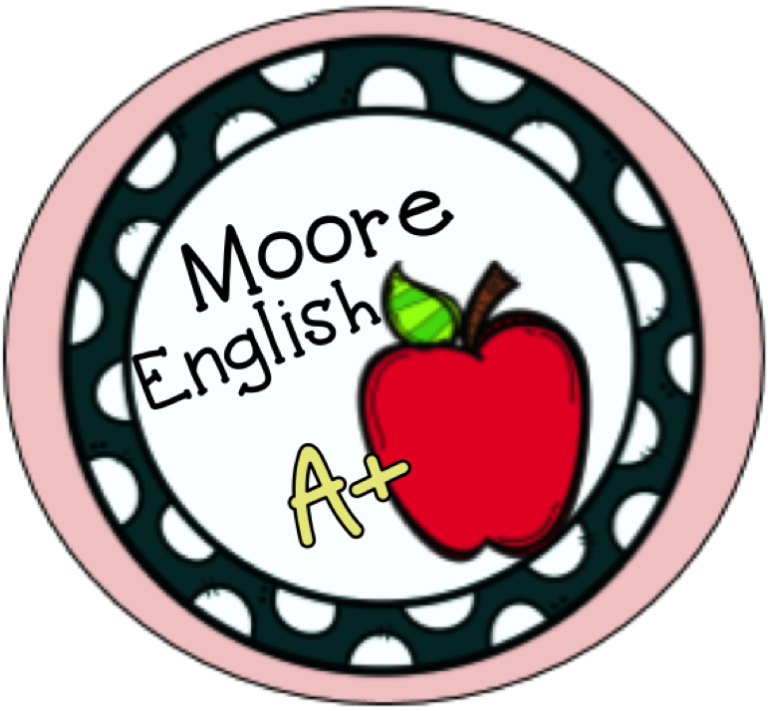Academic vocabulary is something I revisit with students all year long. Over the years, I’ve tried different systems and strategies, but these are the 8 strategies that have stood the test of time!
This post this post may contain affiliate links. Please read the Terms of Use.
Be Intentional
As a young teacher, I wanted to teach every vocabulary term all at once. That was not sustainable. Students memorized definitions for a quiz and then forgot them as soon as they saw their grade.
Now, I intentionally choose which academic vocabulary terms to teach. I also consider when I will deploy each term and the order in which they appear. For example, it doesn’t make sense to introduce the term “synthesize” before the word “analyze.”
To choose academic vocabulary, I review unit assessments, benchmarks, and standardized tests. I also scour state and local standards. Plus, over the years, you get a sense of which words repeatedly trip up students.
Visualize Vocabulary
When you’re ready to introduce or review a piece of academic vocabulary, consider asking students to visualize the text.
My go-to visualization strategy is to build an anchor chart with students. While this may seem elementary, it’s a tried-and-true strategy even in the high school classroom.
Similarly, a word profile is a great way to help students really interrogate the meaning of a word. I have a free word profile that you can grab today!
Employ Retrieval Strategies
One of my favorite PD books is Powerful Teaching by Pooja K. Agarwal and Patrice M. Bain. Agarwal and Bain discuss the value and importance of retrieval strategies. Using retrieval strategies with academic vocabulary has helped my students better retain the meaning of key terms.
For example, I mentioned anchor charts and word profiles. Create the anchor chart early in the week. Reference the chart and use the vocabulary a few times during the week. Toward the end of the week, ask students to practice retrieving that information by creating their word profiles. Before you go over the correct answers, ask students to pair-share their word profiles to compare answers.
Bell work and exit tickets are two more great places for using retrieval strategies. If you’re focused on academic vocabulary, here are a few quick questions that can be used to prompt retrieval.
- We have been discussing the meaning of X. Help your students write a test question about X. Write a multiple-choice question with 4 plausible answers. Then, ask students to create an answer key explaining the correct response.
- The library wants to create a series of vocabulary posters. Using X, create a draft of a poster the library could use.
- You have been asked to explain X to a younger student. How would you define X and help them understand what X means?
Spaced Practice for Academic Vocabulary
Agarwal and Bain also discuss the importance of spaced practice in building the schema that enable retrieval and help knowledge become part of our long-term memories.
For academic vocabulary, these are some of my favorite ways to incorporate spaced practice beyond bell work and exit tickets.
First, I love a good cycle of stations! Regardless of what stations set up you’re using, you can always add a station for academic vocabulary. Studying academic vocabulary is evergreen, so a little polish and practice can never hurt.
When I use academic vocabulary at stations, I like to use these Academic Vocabulary Games. I like these games because there are 11 options, so students can’t really finish too early. Plus, these games can be played digitally, or they can be printed and shuffled. Sometimes students simply match terms to definitions, but other times they play concentration-style. I want to share the first deck of academic vocabulary cards with you for free!
Standardized Test Prep
Of course, teachers may want to put additional emphasis on academic vocabulary during standardized testing season. During this time of the year, I have two favorite review strategies:
First, I love a good escape room. Academic vocabulary can easily become part of an escape room. Perhaps students have to match definitions to find a hidden word or phrase, or perhaps the number of cards leads to the next clue.
Similarly, for a longer term review, consider Test Prep Olympics. Test Prep Olympics can be as long and involved or as short and quick as you’d like. The flexibility of Text Prep Olympics makes them a favorite for me. To incorporate academic vocabulary, make a matching or concentration game one of the Olympic “events.”

